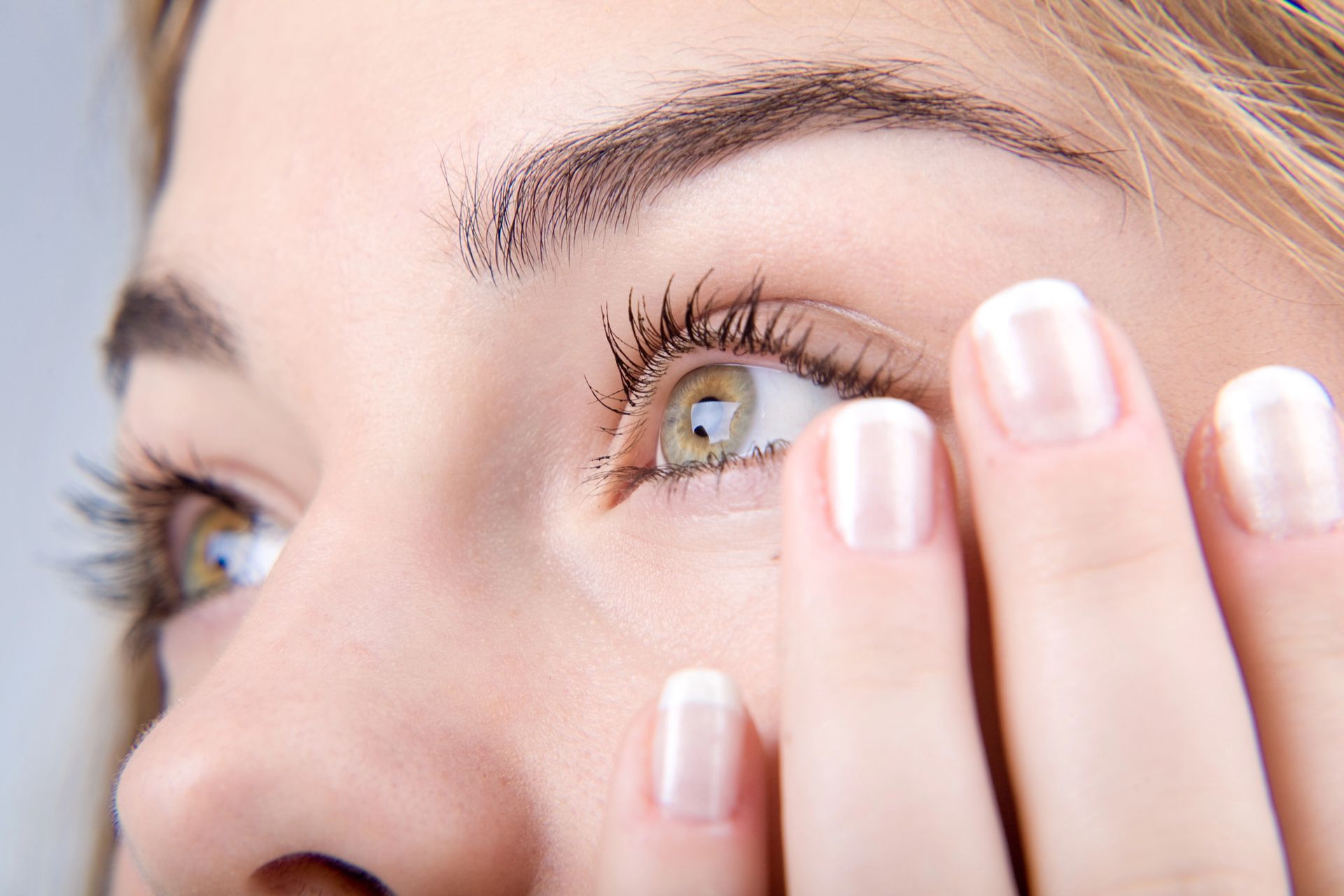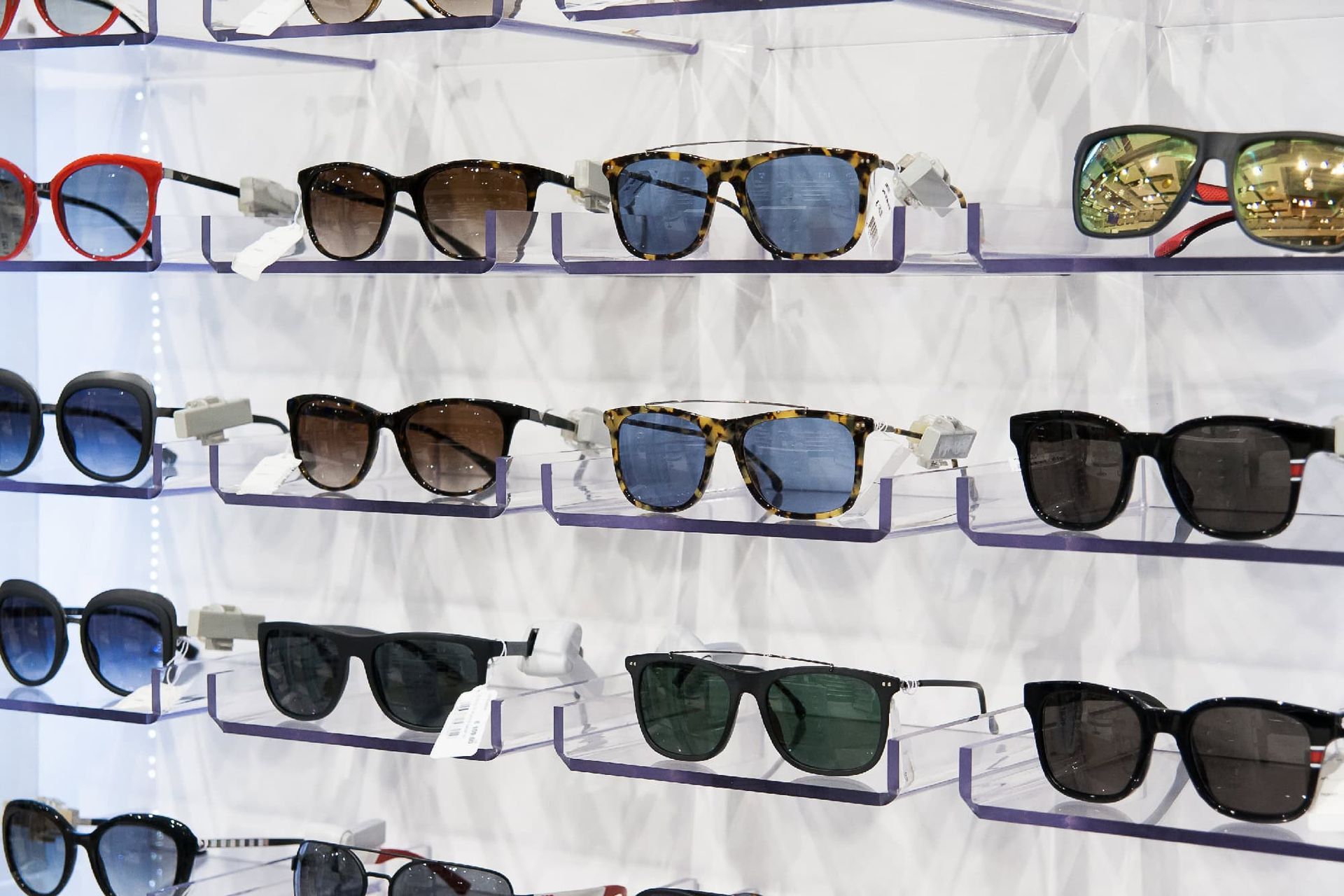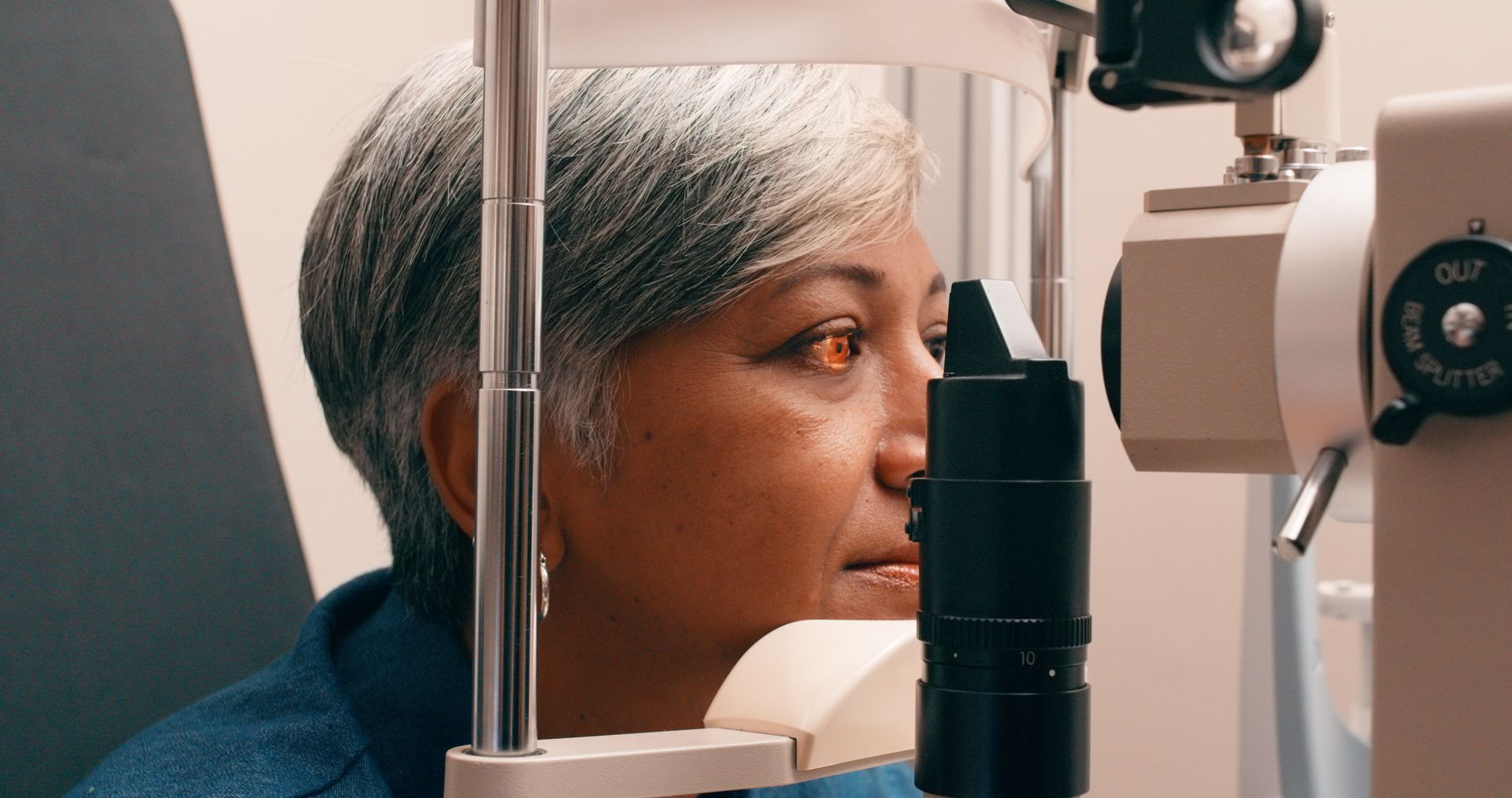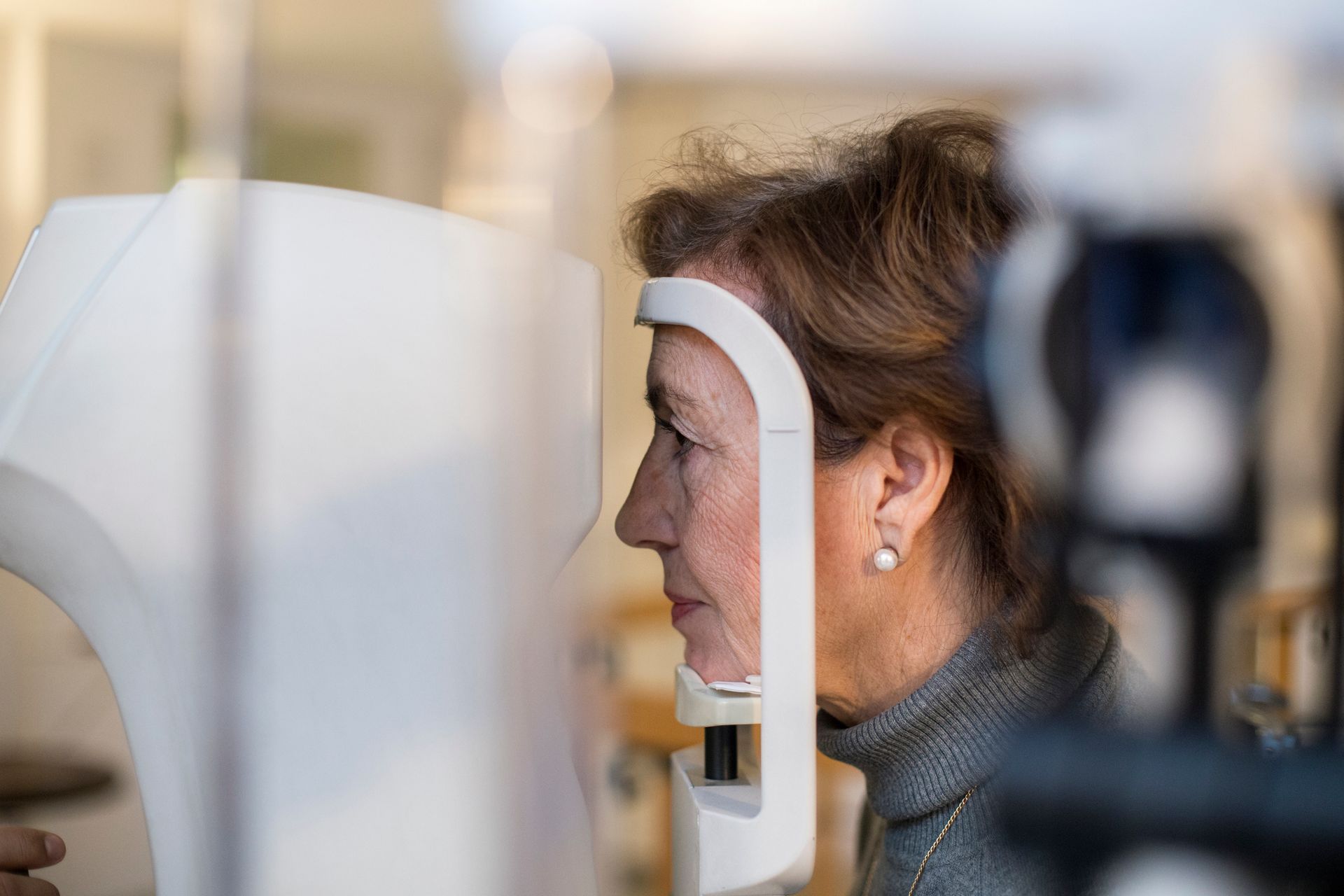Allergies Affecting Eyes: Expert Guide from Pro Optical, West Lebanon, NH
Experiencing redness, itching, and watery eyes? Allergies affecting eyes are likely to blame. This article will help you understand what causes these symptoms, how to identify them, and the best ways to find relief.
Key Takeaways
- Eye allergies, caused by immune responses to allergens, lead to symptoms such as redness, itching, and tearing, requiring proper diagnosis and management.
- Common triggers include seasonal pollen, indoor allergens like dust mites and pet dander, necessitating avoidance strategies to alleviate symptoms.
- Treatment options range from over-the-counter remedies to prescription medications and immunotherapy, tailored to the severity of symptoms and patient needs.
Understanding Eye Allergies

Eye allergies occur when your immune system overreacts to harmless substances like pollen, pet dander, or dust mites. This overreaction, known as allergic conjunctivitis, results in the release of histamine, causing redness, itching, tearing, and swelling. The eyes, being one of the most sensitive parts of our body, are quick to show signs of distress when these allergens make contact.
When allergens enter the eye, the immune system releases a substance called histamine and other chemicals from mast cells. This allergic response aims to fight off the “invaders,” but instead, it leads to familiar uncomfortable symptoms.
Common Triggers for Eye Allergies
Outdoor allergens, such as pollen from trees, grasses, and weeds, including ragweed pollens, are among the most common triggers of eye allergies. These seasonal allergies are often at their peak during specific times of the year, leading to what is known as seasonal allergic conjunctivitis, ocular allergy, and hay fever. For many, the spring and summer months are particularly challenging.
Indoor allergens like dust mites, pet dander, and mold can also cause perennial allergic conjunctivitis, with symptoms persisting throughout the year. Allergic conjunctivitis occurs when irritants such as smoke, perfumes, and cleaning products exacerbate eye allergy symptoms, so identifying and limiting exposure to these triggers is important, called allergic conjunctivitis.
Symptoms to Watch For
Eye allergy symptoms can range from mild discomfort to severe eye allergy symptoms that disrupt daily activities. Common symptoms include redness and watery eyes, which are often the first signs of an allergic reaction. Intense itching or burning sensation in the eyes, including itchy eyes, are also prevalent, causing a persistent urge to rub the eyes, which can worsen symptoms.
Other symptoms to watch for include swollen eyelids, light sensitivity, and sometimes blurred vision, particularly affecting the inner eyelid. These can be particularly debilitating, affecting daily tasks. If symptoms persist or worsen, seek professional help to prevent further complications.
How Eye Allergies Are Diagnosed
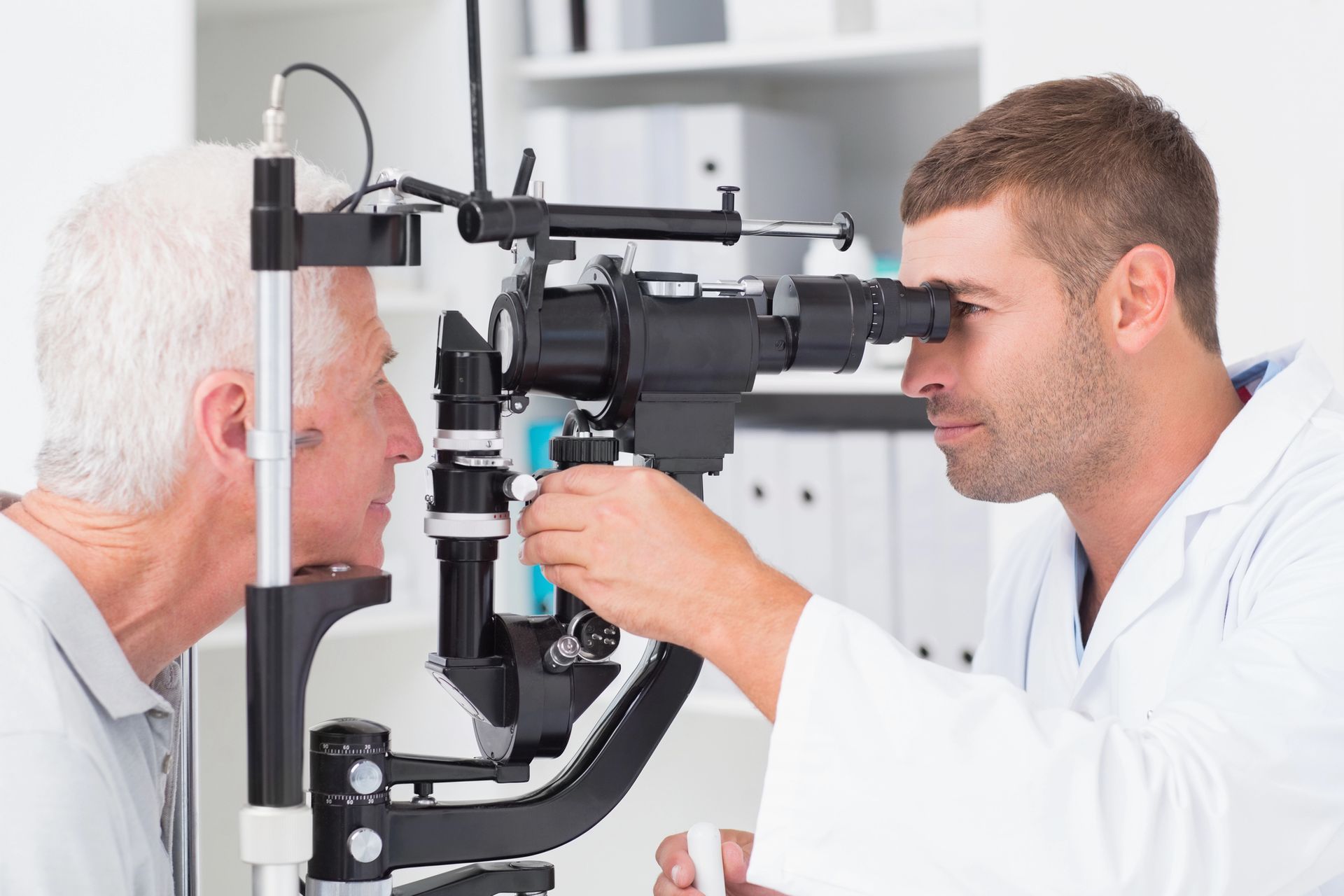
At Pro Optical, diagnosing eye allergies involves a thorough and comprehensive eye exam. Our optometrists begin with a visual examination, checking for:
- redness
- discharge
- swelling that may indicate an allergic reaction. This initial assessment helps us understand the severity and nature of your symptoms.
Further diagnostic techniques include tear film evaluation to analyze tear production and stability, and slit-lamp examination to inspect the eye’s surface and internal structures in detail. These methods ensure an accurate diagnosis, allowing us to tailor treatment plans to your needs.
Expert-Recommended Treatment Options
Managing eye allergies often starts with minimizing exposure to allergens, a step that can significantly reduce the frequency and severity of reactions. Beyond avoidance, several expert-recommended treatment options can help manage and alleviate symptoms.
Treatment options range from over-the-counter remedies to prescription medications and even immunotherapy to treat chronic cases. Each option has its benefits and considerations, and our goal at Pro Optical is to provide you with the most appropriate treatment plan based on the severity of your symptoms and your lifestyle needs.
1. Avoiding Allergens
Avoidance strategies play a key role in managing eye allergies. Simple changes include:
- Keeping windows closed during high pollen seasons
- Using air conditioning in cars and homes to reduce allergen exposure
- Washing bedding in hot water weekly
- Using mite-proof covers to minimize dust mite allergens
Pet owners can benefit by:
- Keeping pets out of bedrooms
- Using damp cleaning methods to prevent airborne dust
- Wearing glasses or sunglasses outdoors to help reduce pollen counts exposure to the eyes.
These practical steps are essential in preventing eye allergy symptoms from becoming overwhelming and can help to limit exposure.
2. Over-the-Counter (OTC) Relief
Over-the-counter (OTC) relief options are effective for managing mild to moderate eye allergy symptoms. Artificial tears and tear substitutes help flush out allergens and provide lubrication to dry, irritated eyes. Antihistamine or mast cell stabilizer eye drops are also popular for reducing itching and relieve itching redness.
Key points about eye drop treatments for redness and itching:
- Decongestant eye drops provide short-term relief from redness but should not be used for extended periods to avoid rebound redness and worsening symptoms.
- Nonprescription oral antihistamines can alleviate itching but may cause eye dryness.
- Choosing the right product and using it as directed is key to achieving the best results.
3. Prescription Medications
Prescription medications may be necessary for severe eye allergies. Our optometrists might recommend steroid eye drops for short-term use under close supervision to reduce inflammation. Nonsteroidal anti-inflammatory drugs (NSAIDs) in eye drop form are another option for severe symptoms.
Oral antihistamines are effective for whole-body allergy management and can help if you experience multiple allergy symptoms. Some prescription eye drops combine antihistamines and mast cell stabilizers for comprehensive symptom relief. These medications should always be used under the guidance of an eye care professional for safety and effectiveness.
4. Immunotherapy
Immunotherapy, or allergy shots, is a long-term treatment option for persistent allergies. This approach gradually increases doses of allergens to build tolerance over time, reducing the severity of allergic reactions. Immunotherapy is beneficial for those who do not respond well to other treatments.
Immunotherapy requires commitment and regular visits to an allergy specialist, but its potential for long-term relief makes it worthwhile. Training your immune system to tolerate allergens can significantly improve your quality of life and enhance your immune response.
Managing Eye Allergies at Home
Managing eye allergies at home involves preventive measures and symptom relief techniques. Applying cool compresses to the eyes can reduce swelling and provide immediate comfort. Using a humidifier can prevent dry eyes, especially during the winter when indoor air tends to be drier.
Proper eye hygiene is crucial. Here are some important practices to follow:
- Remove eye makeup before bed to prevent irritation.
- Wear sunglasses outdoors to offer extra protection from allergens.
- Follow the 20-20-20 rule: look 20 feet away every 20 minutes for 20 seconds to help reduce eye strain and maintain overall eye health.
Eye Allergies in Children

Children are particularly susceptible to eye allergies, often rubbing their eyes or blinking excessively. At Pro Optical, we understand the unique needs of young patients and tailor treatments accordingly. Gentle lubricating eye drops and protective eyewear for outdoor play are commonly recommended to manage symptoms effectively.
A rare but severe form of a serious condition known as vernal keratoconjunctivitis, primarily affecting young boys, requires careful management by an eye care professional. Regular check-ups and early intervention are essential to prevent complications and ensure your child’s eyes remain healthy and comfortable.
When to See the Experts at Pro Optical
If your eye allergy symptoms are persistent, worsening, or interfering with daily life, schedule an eye exam at Pro Optical. Our experienced team can provide personalized treatment options to restore comfort and protect your vision. Persistent symptoms should never be ignored, as they can trigger your symptoms and lead to more serious conditions if untreated.
At Pro Optical, we are equipped with advanced diagnostic technology and a comprehensive understanding of ocular allergies. Our goal is to offer the best possible care to manage your symptoms and improve your quality of life.
Why Choose Pro Optical in West Lebanon, NH?
Pro Optical is more than just an eye care provider; we are your partners in maintaining optimal eye health. We combine advanced diagnostic technology with a wide selection of stylish and high-quality eyewear to meet all your vision needs. Our commitment to exceptional patient care ensures you receive the best treatment and advice for managing eye allergies and other eye health concerns.
Whether you need routine vision exams, help managing eye allergies, or the latest in lens technology, our team supports your eye health journey. Trust in our expertise and dedication to provide the highest standard of eye care.
Schedule Your Eye Exam Today
Regular eye exams are essential for early identification of vision issues and eye diseases. Comprehensive examinations can reveal underlying health conditions like diabetes and hypertension, allowing for timely interventions to prevent serious vision loss. Regular eye checks are crucial for maintaining optimal visual health and enhancing your overall quality of life.
Children also benefit from regular eye exams, which can address vision-related challenges that may impact their learning and development.
At Pro Optical, we encourage you to schedule an appointment with our expert eye doctor team to ensure your eyes receive the care they deserve.
Summary
Managing eye allergies effectively requires a comprehensive approach that includes understanding triggers, recognizing symptoms, and seeking appropriate treatment. Pro Optical in West Lebanon, NH, offers expert care and advanced diagnostic tools to help you manage eye allergies and maintain optimal eye health.
We encourage you to take proactive steps in managing your eye allergies and to schedule regular eye exams. By partnering with Pro Optical, you can ensure your eyes remain healthy and your vision clear. Trust in our expertise and commitment to providing the best possible eye care for you and your family.
Frequently Asked Questions
What are the common symptoms of eye allergies?
Common symptoms of eye allergies are redness, itching, watery eyes, swollen eyelids, light sensitivity, and occasionally blurred vision. If you experience these symptoms, it may be beneficial to seek allergy relief.
How are eye allergies diagnosed?
Eye allergies are diagnosed through a comprehensive eye exam that includes visual examination, tear film evaluation, and a slit-lamp examination. A thorough assessment is essential for accurate diagnosis and effective management.
What over-the-counter treatments are available for eye allergies?
For eye allergies, over-the-counter treatments such as artificial tears, antihistamine or mast cell stabilizer eye drops, and decongestant eye drops are effective options. Consider these treatments for relief from symptoms.
When should I see an eye doctor for my eye allergies?
You should see an eye doctor if your allergy symptoms are persistent, worsening, or affecting your daily activities. Seeking professional help can provide the relief you need.
Why should I choose Pro Optical for my eye care needs?
Choosing Pro Optical ensures you receive top-notch eye care with advanced technology, a diverse selection of eyewear, and outstanding patient support for managing eye allergies and health.

